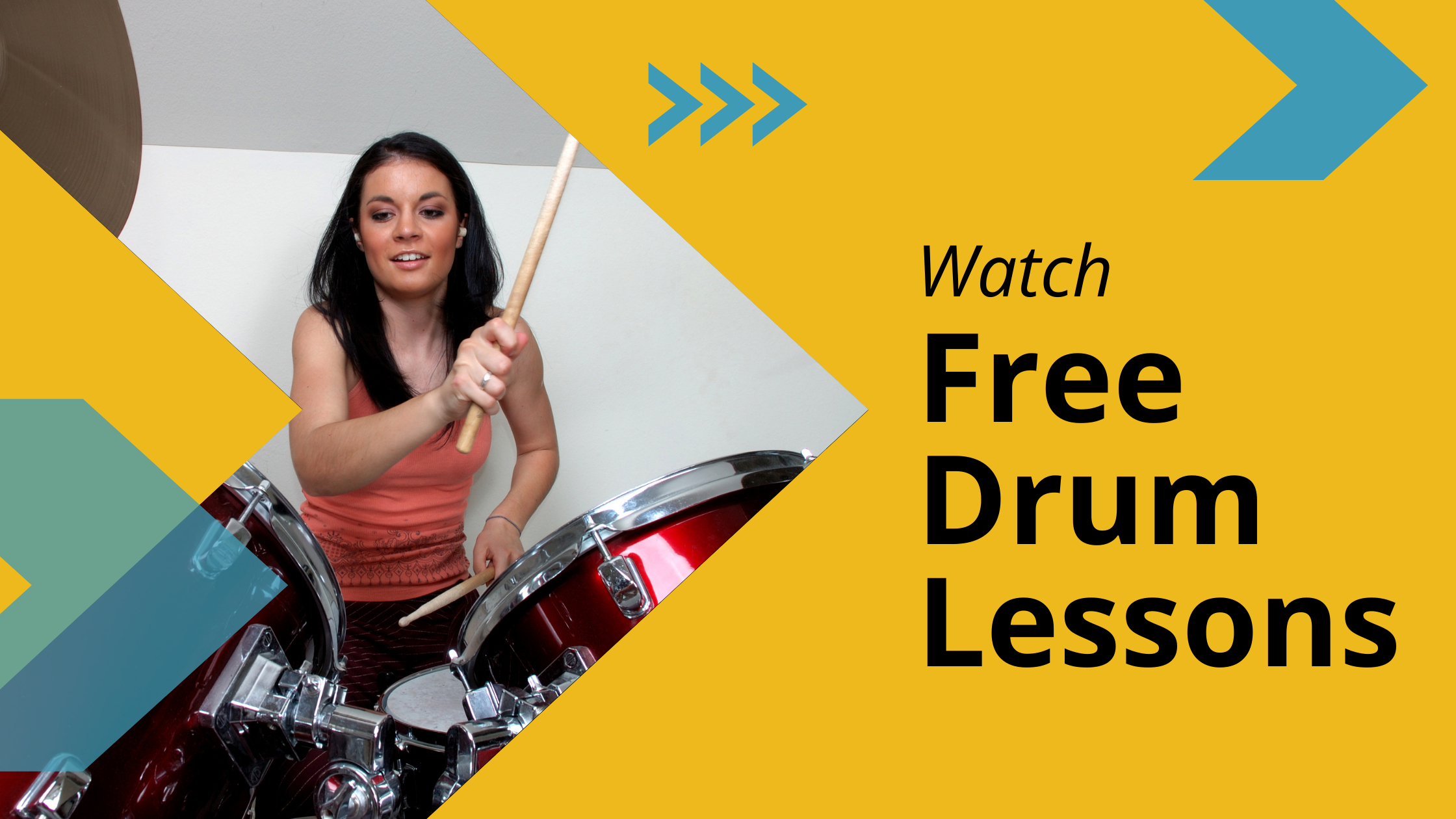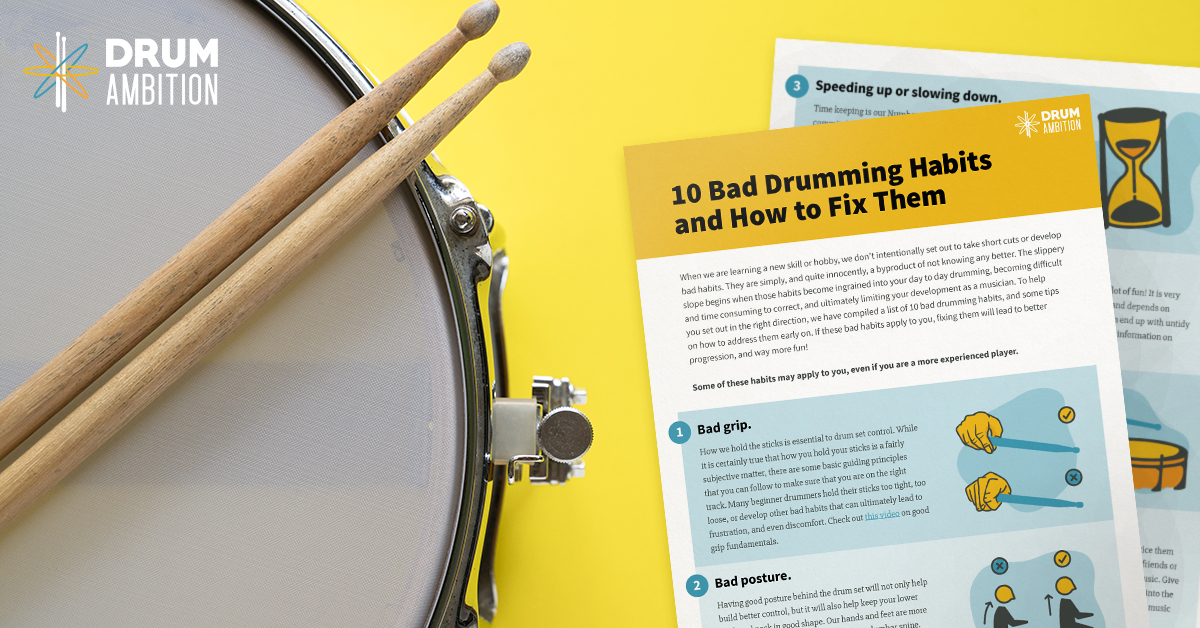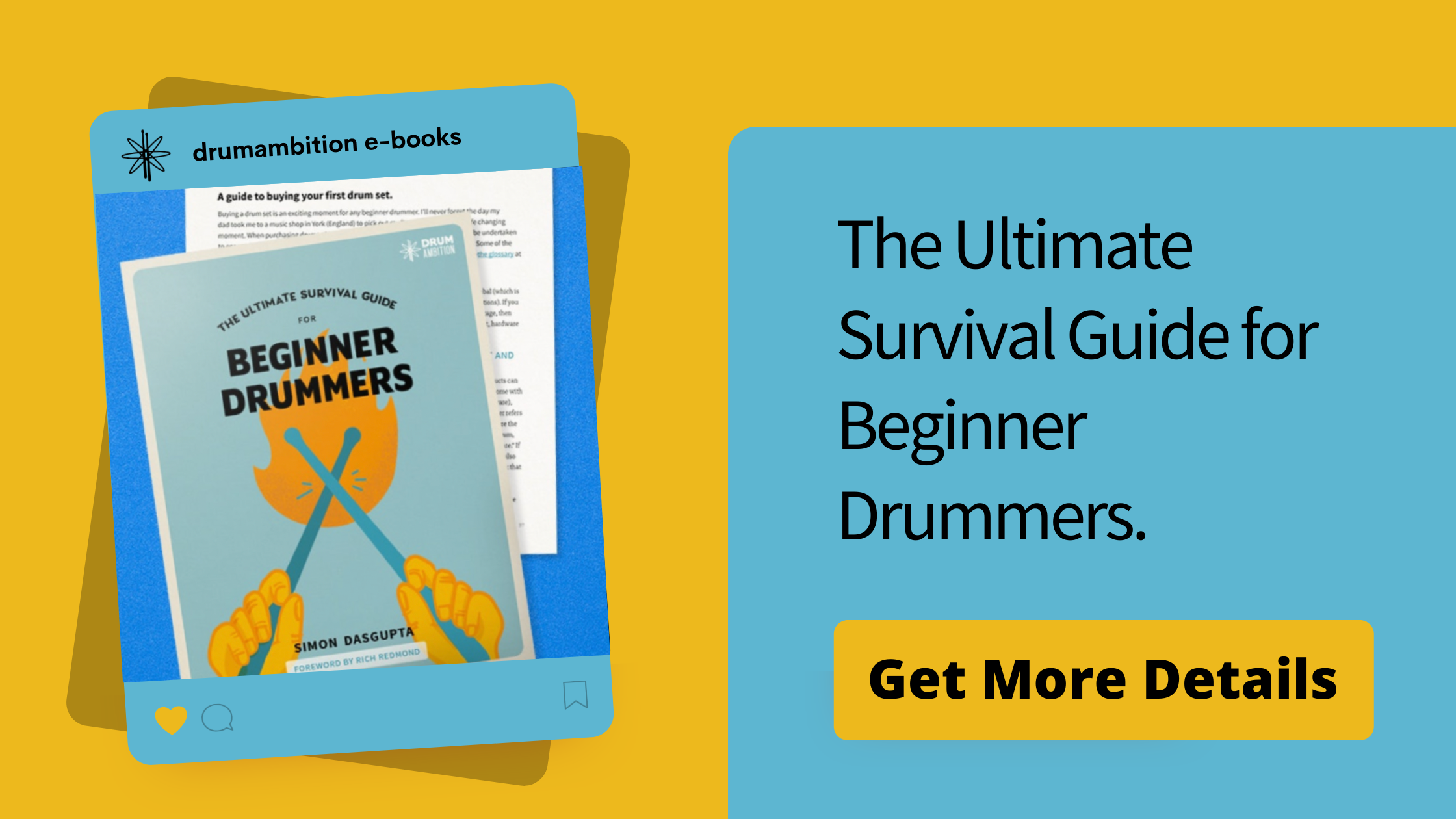We all have different goals when learning to play the drums. For some, it's about starting a new hobby for fun, stress relief, or perhaps fulfilling a long-term goal or aspiration. For others, it might be to learn a song by a favorite band, play with other musician friends, or even the start of a serious professional endeavor.
When you are learning the drums, every day can bring something new and exciting. Whether it's learning a variation of a drum beat, a new drum fill, or discovering a new area of drumming technique, there is always something new to continually push, challenge, and inspire us. Five milestones stand out for many beginner drummers in our experience.
Helpful related articles:
A guide to buying your first drum set.
When is the right time to start playing with other musicians?
1. Playing your first drum beat.
Whether you are working through our free lessons or with a drum teacher in a local teaching studio, you will never forget putting your first drum beat together. This experience is different for everyone. Some people take to it very quickly, and it can take slightly longer for others. This is natural. The result, however, is the same; a huge feeling of satisfaction, accomplishment, and a lot of fun! At Drum Ambition, we walk you step by step through your first pop/rock beat, highlighting the importance of counting and playing slowly to build co-ordination. If you follow these simple guidelines, you will be playing your first beat confidently and embarking on the journey of a lifetime. The first time our Founder, Simon DasGupta, played a beat on a real drum set was in his first high school year. It was part of a general music class, and because he had practiced on bean-bags and pots and pans for years (his poor parents - sound control is easier these days), he was the only person in the class able to keep a beat and that made him feel great!
2. Playing along with a favorite song.
We asked Simon if he remembered playing his first song. As a nine-year-old growing up in England, he loved the band Adam and The Ants. It was the 1980s, and glam-rock was the big thing. These guys were real heroes to Simon. Their music was always very percussive, and they had two live drummers. Simon practiced the track Kings of The Wild Frontier by playing on pillows and bean bags. You may have a song that you aspire to play along with, and that's a great goal to discuss with your drum teacher. The first drum-chart that Simon was taught to read was Woman by John Lennon, and he still reflects on how great it felt to sight-read actual music from start to finish. It taught him the real value of learning to read music notation. It's great to have a goal, and aspiring to play a song is a perfect one. Be realistic (try and avoid overly-technical songs if you are starting) and discuss it with your teacher. There will definitely be some groundwork that you have to cover first before playing along to a song - all fun stuff, though. If you are a Drum Ambition subscriber, you can always reach out to Simon for guidance.
3. Buying your first drum set.
Remember, most people don't have drums when starting and begin their drumming career by playing air drums, using pillows or practice pads, and finding creative ways to build co-ordination. We love hearing stories on how students improvised to create their first drum sets. You will never forget the moment you go out to buy your first drum set or the day it arrives in boxes at your door. It won't matter if it is new, used, pristine, or beaten up - it is a drum set, and it is yours. It is the continuation of a truly life-changing journey, whatever your goals.
4. Playing with other musicians.
While this is the goal of many student drummers, others are open and honest in that they do not have any plans to take the hobby outside of the house and play with other musicians. If you fall in the latter category (which is, of course, perfectly ok), you may find that this view may change as you meet fellow beginners and hobbyists who play other instruments and are looking for other musicians to learn and grow with. Our advice is to be open to this possibility. Playing with other musicians and making music is a wonderful experience, and the friends you make and relationships you build along the way could be life-changing. Regardless of this, the feeling you get when you click your sticks together and count in the band is a feeling that few people get to experience - the thrill of driving a band. Truly awesome.
5. Giving a drum lesson to someone else.
Why not share the joy? As you become more experienced, the chances are that a friend or family member will be interested in what you are doing. They may want to play themselves and will look to you for guidance. This is a great opportunity for you to give your first drum lesson and pass on the knowledge that you yourself have recently learned. Doing this is a great feeling, particularly as you see others' progress as a direct result of your guidance.
We are here to help.
If you have any questions about this article, please feel free to email [email protected].



